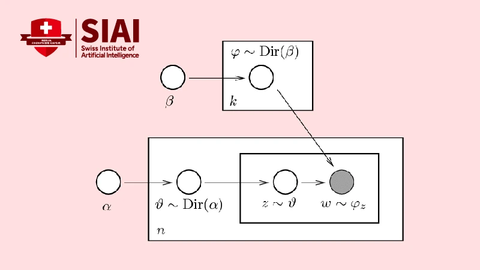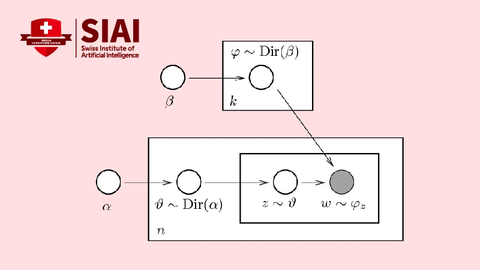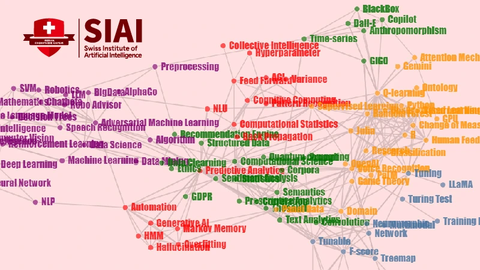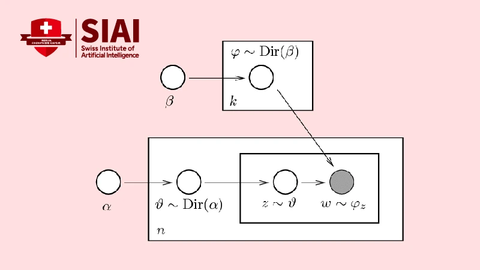MBA in AI & Big Data
For the top 1% business man in AI BigData
Nowadays a variety of industries and companies claim their adoption in AI, but the reality is still far behind what AI optimists have promised. The program, by reasonable depth of theoretic understanding in elementary scientific tools, helps students to uncover exaggerated claims in the AI/BigData industry, to look through what the necessary skill sets are to achieve goals in AI application, and to fit expectations to reality. Unlike regular MBA programs elsewhere, it is a more hard skill-based, yet AI business-oriented specialization.
Beaware that SIAI’s AI MBA does not provide ordinary MBA’s biz courses. Except two math/stat pre-requisites (STA502, STA503), other courses are shared with MSc AI/Data Science’s 40% of compulsory coursework. Course contents are identical, but MBA students are given different sets of grading/evaluation. If wanted, MBA students choose Technical track to be under MSc’s grading policy.
Technical track
The technical track requires you to follow grading policies same as MSc AI/Data Science, along with two MBA only Math/Stat exams, which are used for MSc AI/Data Science (2-Year) admission.
Upon graduation, students are qualified to attempt a variety of daily business problems with sufficiently deep enough technical tools. Mathematical requirements for this track are as good as senior year studies in scientific Bachelor programs in top research schools. Technically not prepared students are strictly discouraged.
During STA502, STA503, many students give up tech track. Successful students, after the 1st year, are allowed to switch to MSc AI/Data Science (2-Year).
Business track
The business track is designed to explain learned concepts in plain English. List of classes required to finish are identical to the technical track. i.e. Students are given the same class materials.
However, unlike technical track, students have options to write essays instead of math and code-based examinations. For the essay, the course covers use-cases of previous exams, which are mostly concise summary of live events in real field, so as to apply conceptual understanding to students’ personal business environments.
Such re-interpretation has proven to strengthen one’s deeper understanding and more clear translation of mathematically written idea to live business events.
Lecture Note
Carousel
MBA in AI BigData
at a glance
HIGH QUALITY ONLINE CLASSES
ONLINE TA SESSIONS
12 COURSES & 1 DISSERTATION
8 WEEKS PER COURSE
1 COURSE PER WEEK
2 YEAR PROGRAM
Learning Outcomes
DATA ANALYTIC TRAINING FOR ABSTRACT THEORY TO REAL APPLICATION
CASE STUDIES FOR APPLYING COMPUTATIONAL SCIENCE TO BUSINESS
MBA in AI & Big Data

- Structure of Courses
- Class hours: 3 hour class in each week for 8 weeks
- TA hours: 1 hour TA session per week from week 2 to 8
- Examination: Take-home examination or term paper
- Structure of Program
- Coursework: 12 courses (5 ECTS* per course)
- Dissertation: 1 dissertation (30 ECTS* per dissertation)
- Teaching medium
- Mostly video recorded with some live support
- Discussion channel support
*ECTS – European Credit Transfer and Accumulation System

- Undergraduate diploma
Class module : Online only
Credit : 90 ECTS (Level / EQF 7)
Required documents
- 60% or above in admission examination
- Bachelor diploma and transcript (mandatory)
- Graduate school diploma and transcript (if applicable)
- Proof of one of English requirements (mandatory)
- Statement of Purpose
- Resume
– Any work experience that gives you motivation for career in AI
*All submitted documents will be held for 5 years

Academic schedule
- 4 semesters w/ 3 courses each
- 8 weeks for each course
- 2 weeks break in December and June
Prep classes (Not mandatory for business track)
- LaTeX for assignments and paper writing
- Programming prep for Python
Requirement for graduation
- Coursework: 60 ECTS (12 courses)
- Dissertation: 30 ECTS
- Technical track : 10,000 words or above and technical interpretation of the topic
- Business track : technical requirement should be translated to more in-words argument

Tuition structure
- Application fee: CHF 200.- (Non-refundable)
- Administration fee: CHF 1,000.- (Non-refundable)
- Per Semester: CHF 6,000
– 3 courses per semester
– 1 course for 5 ECTS* - Dissertation support: CHF 3,000
Graduation requirements
- Coursework – 60 ECTS*
- MBA Dissertation – 30 ECTS*
*ECTS – European Credit Transfer and Accumulation System

Admission examinations are administered by SIAI Extension School
- Application fee : CHF 200.- (Non-refundable)
– Technical track: Basic linear algebra, differential equations, introduction to statistics
– Business track: High school math/stat - Examination schedule
– Available on SIAI Extension School
– Technical track: CHF 50 per exam
– Business track: Free - Change of program
– Tech → Biz: No penalty
– Biz → Tech: Re-evaluation required

Admission examinations are administered by SIAI Extension School
- Application fee : CHF 200.- (Non-refundable)
– Technical track: Basic linear algebra, differential equations, introduction to statistics
– Business track: High school math/stat - Examination schedule
– Available on SIAI Extension School
– Technical track: CHF 50 per exam
– Business track: Free - Change of program
– Tech → Biz: No penalty
– Biz → Tech: Re-evaluation required
SIAI Experience Stories
Review
MBA, but not the same MBA
MBA in AI & BigData is not a regular MBA. It is specifically focused on data analysis in business environment.
In the program, elementary math, stat, and scientific programming courses which are often regarded as research and hard theory courses are translated into business manner. Unlike vocational schools for programming or MBAs for soft-skill jobs, the courses require students to train abstracting simple cases so as to generalize and customize to a variety of differing situations. Such training help students seeing theory in a more practical perspective, which is a foundation of this program.
After initial training in elementary scientific knowledge, in Digital Marketing, students are presented how online IT business leverages AI & BigData, which works as a guidance for practical understanding of theories. Similarly, in AI Business cases, newly emerging business (ex. Robo-advisors, SNS analysis) applications of AI will be discussed in the context of math and stat in response to the recent advent of computational approaches. In addition, legal issues, mostly privacy protection issues, are provided in conjunction with Law & Economics and IT business specific concerns in Law and AI.
In the final term, both data visualization and data management help students not only build a sample database (DB) and read it to programming language, but they will also use the DB to apply learned theory to real-life data set. Graduates will experience that, together with mathematical intuition, data visualization can be extended to solve a myriad of business problems.
The program concludes with a MBA-level dissertation.





